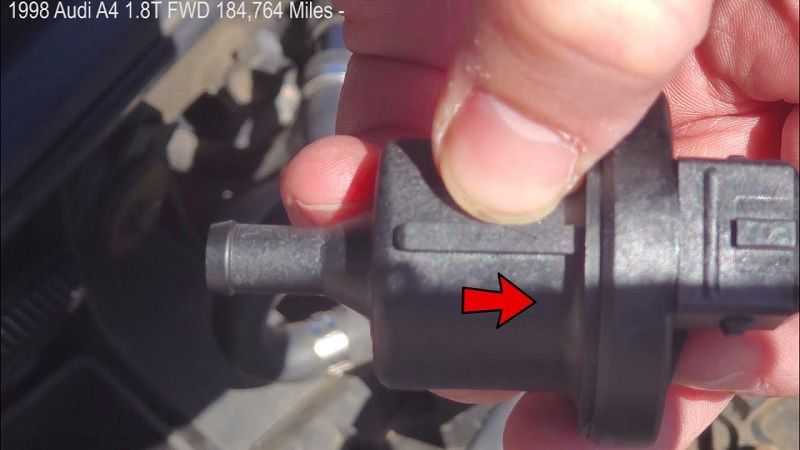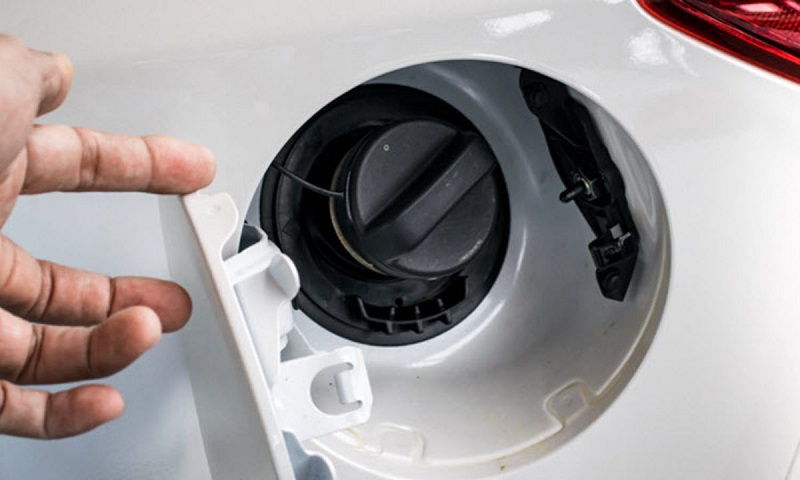This post contains affiliate links. This means I will make a commission at no extra cost to you should you click through and make a purchase [ “As an Amazon Associate, I earn from qualifying purchases.” ]. Read the full disclosure here.
What Is P0441 Audi GuideMechanic.Com P0441 Audi is an error code that refers to an issue with the Evaporative Emission Control System (EVAP) of Audi vehicles. The EVAP system is designed to capture fuel vapor emissions from the fuel tank and prevent them from escaping into the atmosphere.
The P0441 error code typically indicates that there is a problem with the EVAP system’s ability to purge the fuel vapor canister. This may be caused by a malfunctioning purge valve, a blocked charcoal canister, or a leak in the EVAP system’s hoses.
If the P0441 error code is not addressed, it can lead to increased emissions and potential damage to the vehicle’s engine. Therefore, it is recommended that any related repairs should be carried out as soon as possible to ensure that the vehicle remains in optimal condition.
What Is P0441 Audi
Definition Of P0441 Code

P0441 is an engine code that is related to the evaporative emission control (EVAP) system. This code indicates that there is an issue with the EVAP system and that there may be a leak in the vehicle’s fuel vapor system.
The EVAP system is responsible for preventing fuel vapors from escaping into the atmosphere. The P0441 code may be triggered if there is a problem with the EVAP purge control valve, the EVAP canister, or the fuel tank pressure sensor.
See Also: VW Dashboard Lights Meaning
If left unaddressed, this code can lead to reduced fuel efficiency and increased emissions. It is important to address the issue promptly to avoid further damage to the vehicle and to prevent any negative impacts on the environment.
P0441 Audi
Causes Of P0441 Code
Check out this ANCEL AD410 Enhanced OBD II Vehicle Code Reader Automotive OBD2 Scanner Auto Check Engine Light Scan Tool (Black/Yellow)

The P0441 code is a common OBD-II diagnostic trouble code that indicates a problem with the Evaporative Emission Control System (EVAP). This system is responsible for preventing fuel vapors from escaping into the atmosphere and causing pollution.
There are several different possible causes of the P0441 code, including a faulty purge valve, a defective charcoal canister, a loose or damaged gas cap, or a leak in the EVAP system. Additionally, a damaged EVAP hose or a faulty EVAP pressure sensor can also trigger the P0441 code.
It is important to address the underlying cause of this code in a timely manner, as a malfunctioning EVAP system can cause issues with emissions and potentially lead to more serious problems with the vehicle’s engine performance.
Fortunately, many causes of the P0441 code can be diagnosed and fixed relatively easily, with the help of a qualified mechanic or auto technician.
Loose Gas Cap

A loose gas cap may seem like a minor issue, but it can have significant consequences for both your vehicle and the environment. When the gas cap is loose, gasoline vapor can escape from the fuel tank and contribute to air pollution.
This can also cause your vehicle to fail the emissions test required in certain areas. Additionally, a loose gas cap can decrease your vehicle’s fuel efficiency by allowing gasoline to evaporate and reducing the amount of fuel available for your car’s engine.
In some cases, a loose gas cap can trigger the “Check Engine” light on your dashboard, indicating that there is a problem with your vehicle’s emissions control system. It’s important to make sure your gas cap is tightly secured after each refueling to prevent these issues from occurring.
Faulty Purge Valve

A purge valve is an essential component in many systems that require the removal of contaminants or unwanted gases. However, when the purge valve fails to function properly, it can lead to a range of issues.
One of the most common issues associated with a faulty purge valve is a build-up of contaminants in the system, which can lead to reduced operational efficiency and even system failure. In addition, a faulty purge valve can also lead to the release of dangerous gases or substances, which can pose a risk to the health and safety of those in the surrounding area.
See Also: Volkswagen Check Engine Light
It is essential to regularly inspect and maintain your system’s purge valve to ensure it operates correctly and prevent any potential issues. If you suspect your purge valve is faulty, it is crucial to address the issue immediately to avoid any potential safety hazards or system failures.
Leaking EVAP System
Check out this AUTOOL Automotive Smoke Leak Detector Evap Car Pipe Leakage Tester Fuel Leak Locator Universal for Motorcycle/Car/Truck

An EVAP system, or an Evaporative Emission Control System, is a crucial component in modern vehicles that helps to reduce harmful emissions by actively preventing the release of gasoline vapors into the atmosphere.
In essence, the system works by trapping and storing fuel vapors in a special container, known as the EVAP canister, until they can be safely burned off by the engine. However, over time, the EVAP system may begin to develop leaks, which can lead to a range of problems, including reduced fuel efficiency, increased emissions, and even potential safety hazards.
To avoid these issues, it is important to regularly inspect the EVAP system for signs of leaks, such as the presence of fuel odors or visible damage to the canister or associated hoses, and to promptly address any issues as they arise.
By ensuring that your vehicle’s EVAP system is functioning correctly, you can help to keep both the environment and yourself safe while on the road.
P0441 Audi
Faulty Charcoal Canister
A faulty charcoal canister can cause a variety of problems in a car’s emissions system. This component is designed to capture and store fuel vapors that are produced in the fuel tank, preventing them from being released into the atmosphere.
When the canister is working correctly, it can help reduce harmful emissions and improve fuel efficiency. However, if the canister becomes clogged or damaged, it may not be able to perform its function properly.
This can lead to a variety of issues, including rough idling, reduced power, and decreased fuel efficiency. Additionally, a faulty charcoal canister may cause the car to fail emissions tests, which can result in expensive repairs and fines for the owner.
Regular maintenance and inspection of the emissions system can help prevent issues with the charcoal canister and ensure that your car is running efficiently and cleanly.
Failed Fuel Tank Pressure Sensor
A fuel tank pressure sensor plays an important role in the efficient functioning of a vehicle. It measures the pressure in the fuel tank and sends the information to the engine control module, which then regulates the fuel pressure and emission control system.
However, if the fuel tank pressure sensor fails, it can cause several problems such as reduced engine performance, decreased fuel efficiency, and increased emissions among other issues. A failed fuel tank pressure sensor can also lead to inaccurate readings, which can cause the engine to stall or fail.
See Also: Volkswagen Epc Light Meaning
Therefore, it is important to regularly check and replace the fuel tank pressure sensor to ensure the smooth functioning of the vehicle and avoid any potential safety hazards.
- Project Trucks for Sale Cheap - July 1, 2025
- Salvage Title Trucks for Sale - July 1, 2025
- Restored Classic Trucks for Sale - July 1, 2025
